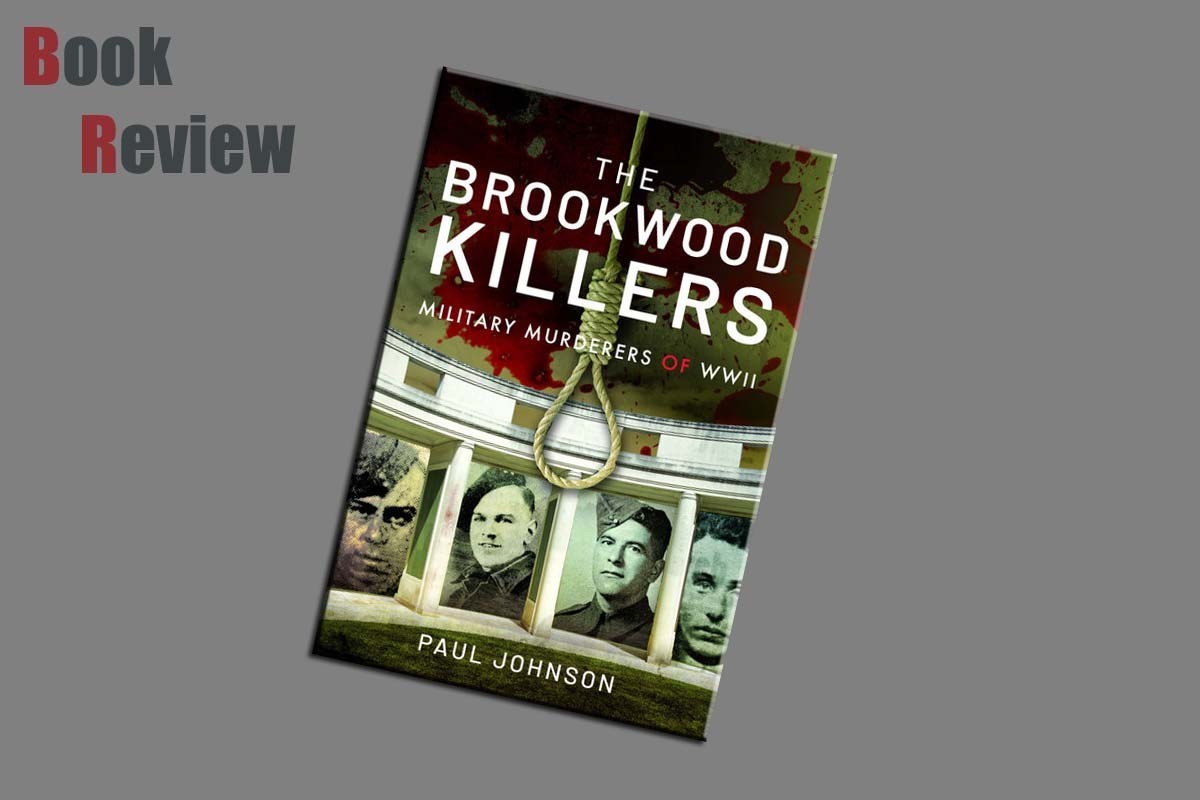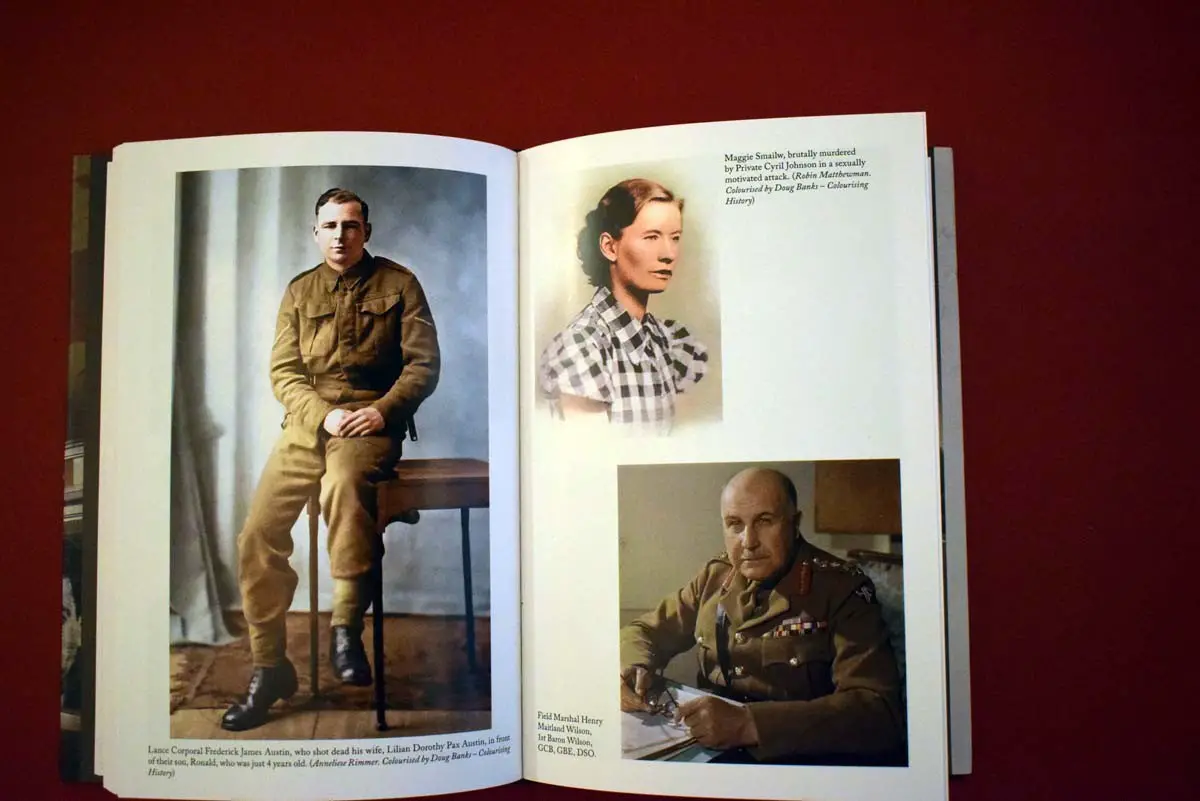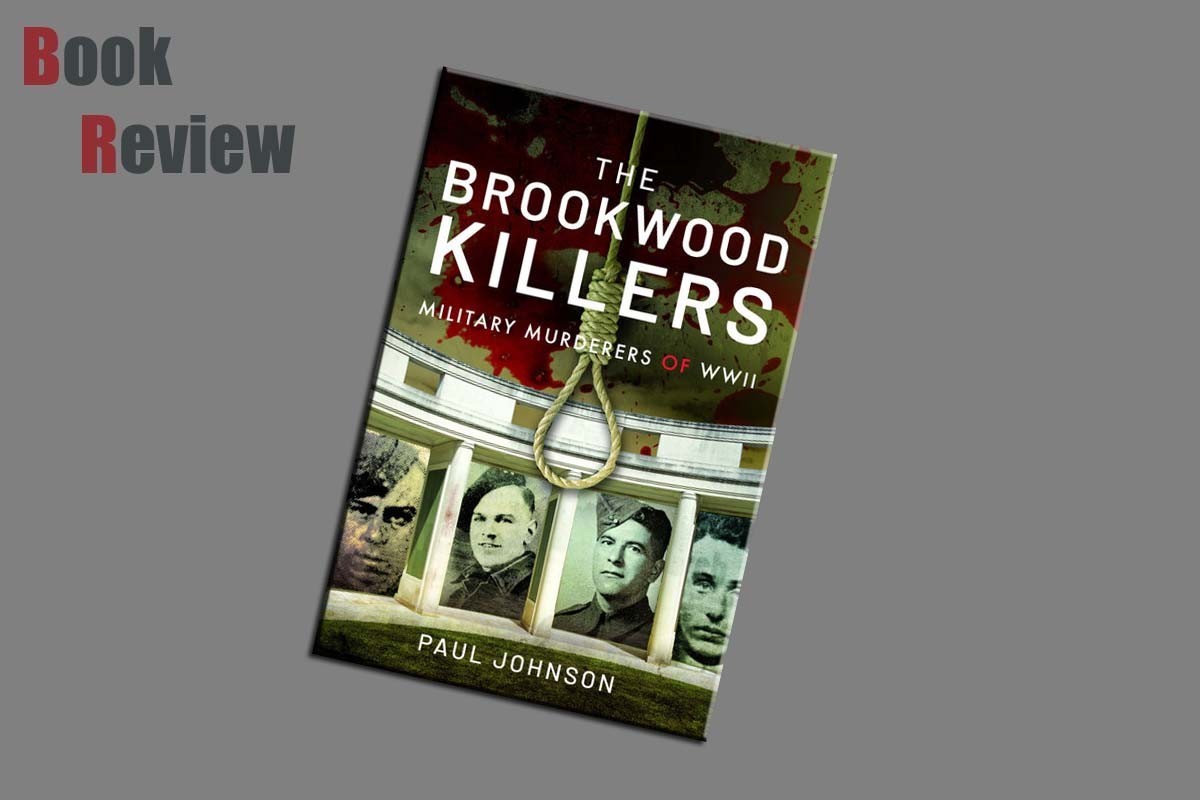
Introduction
The following introduction is taken from the Pen and Sword website:
Nestled deep in the Surrey countryside stands the Brookwood 1939-1945 Memorial. Maintained by the Commonwealth War Graves Commission, its panels contain the names of nearly 3,500 men and women of the land forces of Britain and the Commonwealth who died in the Second World War and who have no known grave.
Among the men and women who names are carved on the memorial are Special Operations Executive agents who died as prisoners or while working with Allied underground movements, servicemen killed in the various raids on enemy occupied territory in Europe, such as Dieppe and Saint-Nazaire, men and women who died at sea in hospital ships and troop transports, British Army parachutists, and even pilots and aircrew who lost their lives in flying accidents or in aerial combat.
But the panels also hide a dark secret. Entwined within the names of heroes and heroines are those of nineteen men whose last resting place is known, and whose deaths were less than glorious. All were murderers who, following a civil or military trial, were executed for the heinous offence they had committed. The bodies of these individuals, with the exception of one, lay buried in un-consecrated ground.
As Paul Johnson reveals, the cases of the ‘Brookwood Killers’ are violent, disturbing and often brutal in their content. They are not war crimes, but crimes committed in a time of war, for which the offender has their name recorded and maintained in perpetuity. Something that is not always applied in the case of the victim.
Review
This offering from Frontline Books courtesy of Pen and Sword looks at members of the armed forces who committed heinous crimes during World War II and that were executed for those crimes. This is a hardback book authored by Paul Johnson of 256 pages on a good quality satin paper. The contents of this title are relayed over 24 chapters which are as follows:
Chapter 1 Crimes in Wartime 1939-45
Chapter 2 Execution and Commemoration
Chapter 3 The Brookwood Memorial 1939-45
Chapter 4 Sergeant Ernest Charles Digby - The Baby Killer
Chapter 5 Gunner Ernest James Harman Kemp - The Cabbage Patch Murder
Chapter 6 Corporal Hassan Nameh Midlish - A General Court Marshal
Chapter 7 Private Cyril Johnson - A Question of Proof
Chapter 8 Lance Corporal Walter Clayton - The Morecoombe Beach Strangler
Chapter 9 Private David Miller Jennings - A Murder in the NAAFI
Chapter 10 Private Arthur Peach - The Killing of Kitty Lyon
Chapter 11 Lance Corporal Frederick James Austin - I Didn’t know it was loaded
Chapter 12 Private Theodore John William Schurch - I played my game and lost fairly
Chapter 13 Private Terrence Casey - A case of mis-taken identity
Chapter 14 Private John Gordon Davidson - A Skillful interrogation
Chapter 15 Corporal Dudley George Rayner - Guilty, Sir!
Chapter 16 Private Arthur Thompson - Death at the Nag’s Head Inn
Chapter 17 Bombardier Joseph Howard Grossley - It was the Germans!
Chapter 18 Private August Sangret - The Wigwam Murder
Chapter 19 Private Charles Eugene Gauthier - A Light of Love
Chapter 20 Private Horace Berrisford Gordon - Got any gum, chum?
Chapter 21 Private Mervin Clare McEwan - The Tattooed Killer
Chapter 22 Private Charles Arthur Raymond - A Voluble and Incessant Talker
Chapter 23 Gunner Kenneth Charles Sidney Prior - A Disgraceful Death
Chapter 24 The Third Man - Killer and Victim
This book from Paul Johnson looks at those members of the armed forces that committed crimes that they were executed for, and whose names are recorded on the Brookwood memorial. The book begins with a look at conditions in the UK, where dancing was the usual form of entertainment and became a focal point for everyone including criminals and rapists. After this brief look at the conditions of the time, you move on to the execution of individuals where you are provided with the persons who were responsible for the executions of prisoners during World War II and listing people from 1906 to 1956. Details are provided on how an execution by hanging is carried out, and it is stated that from the time the executioners enters the condemned cell to the time of execution is 12 seconds, and so not a lot of time to consider your fate when someone enters your cell. People whose names were commemorated on remembrance memorials regardless of how the individual died. There are exceptions to the rule, where crimes committed by some RAF personnel were discharged from service and so were charged as civilians, in order to prevent a stain on the King’s uniform. American personnel were treated differently in that the US Government had them buried where they were executed and after the war their bodies were dug up and buried anonymously in an American Military cemetery in France known just a Plot E - their names are not commemorated in any way, shape or form.
The criminals that are covered in this title are all treated in a similar style, you are provided with the panel and column where the individual’s name is recorded on the Brookwood Memorial. Also provided is the individuals service number, unit and date of execution. The chapter as a whole provides some details on the individual who committed the crime, including pieces of information on the stories they told surrounding the crime. You are provided with details on the victim, what is known of the crime, and lastly the trial and appeals if made.
Conclusion
For those people who have an interest in crime stories, and in this case those committed by military personnel. What I like about this title, is that the details are kept to relevance and so are easily read due to the length of each individual chapter. The result is a pleasing read, covering crimes committed in times of war.




























